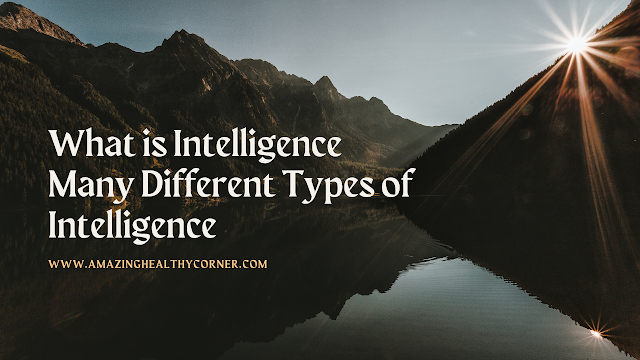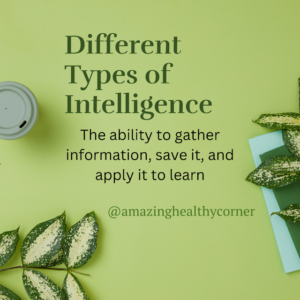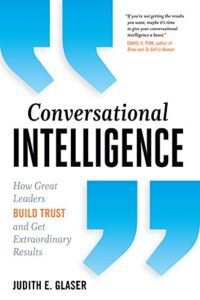The Hazy Definition of Intelligence
Particle accelerators, poetry, and Pokémon are just a few of the accomplishments that humans are proud of. They were all made possible by something that humans place a great value on: intelligence. When we try to describe intelligence, though, things become hazy. We tend to think of intelligence as a quality like height or strength. Simply said, intelligence is a method of problem-solving. In particular, the challenge of surviving, which includes seeking for food and shelter, fending off sexual rivals, or running from predators.
The Different Types of Intelligence: Why You’re More Than Just a Number
Intelligence is not just one thing; it also refers to the capacity for learning, critical thinking, creativity, and problem-solving. It shows up in a plethora of different behaviours. From innate or instinctive responses to various levels of learning to awareness, etc. But there is disagreement among scientists as to how intelligence develops or even what qualifies. Since awareness is useful for problem-solving, intelligence is also linked to consciousness, further complicating matters. Since intelligence isn’t quite binary, perhaps we could consider it to be more like a versatile set of skills: a toolkit simple tools
Different Types of Intelligence: The ability to gather information, save it, and apply it to learn
1. The ability to gather information, save it, and apply it to learn are the most fundamental tools in the intelligence toolkit. Using our senses to perceive the world—such as sight, sound, smell, touch, and taste—enables us to navigate it and respond to it correctly. However, living beings also need to check their own physical conditions, such as hunger and exhaustion. All living creatures rely on information to guide their actions, and without it, you are powerless to control how you will respond to your environment. If we can preserve and store information, it becomes much more potent.
Different Types of Intelligence: Memory Types of Intelligence: Memory
2. Memory is the second instrument. To avoid having to start over each time a living thing detects something important, memory is the capacity to store and recall knowledge. Memories might include details from past occasions, places, and associations, as well as actions like foraging or hunting techniques. Some of these, like flying, require a lot of practise before becoming second nature. This process of stringing together a series of ideas or deeds is what we refer to as learning. Basically, a series of varying and adaptable repeated behaviours. These three tools allow organisms that appear to be unintelligent to behave in surprisingly intelligent ways. The acellular slime mould, which is essentially just one enormous slimy cell, exhibits behaviour that is akin to that of an animal with a basic brain. When placed in a maze with food at one end, the slime mould explores the area and leaves behind slime trails that resemble memories smeared on the ground. It continues to explore, avoiding the designated paths, and locates the food.
Different Types of Intelligence: The slime mould Types of Intelligence: The slime mould
3. The slime mould changes its behaviour to avoid wasting time and effort by blindly becoming stranded in dead ends. Although experts disagree on whether this behaviour is intellectual, it does give the slime mould a certain advantage. This habit is hardwired. Bees are an illustration of more intelligent, adaptive behaviour. Bumblebees were taught by scientists to move a coloured ball into a goal post in exchange for a sugar reward. The bees were not only incredibly skilled at these non-natural behaviours, but they also became more effective over time. Even if it was a different colour from the ball they were trained with, bees will pick the ball that was closest to the goal when multiple balls were available.
Different Types of Intelligence: The 4 Types of Intelligence We Require to Solve Harder Problems
4. We require even more flexibility and fancier tools for harder problems. A greater range of issues can be resolved by more complicated creatures by building on the fundamental tools. They are capable of memorising numerous relationships, linkages, and mechanical techniques. This device will be known as “The Library of Knowledge.” Consider racoons. Human food is their preferred type of food. Their strategy for obtaining such delights relies on a variety of theoretical and practical abilities, which makes them expert burglars with the ability to open windows and pick locks. Raccoons were given boxes with various locks, including latches, bolts, plugs, and push bars, as part of a study. They figured out how to open each package in fewer than ten tries. Even when various locks were combined into progressively complex combinations that needed to be solved in the proper order and with varying degrees of strength. The raccoons were still as quick as when they originally solved the problem and knew how to open the boxes a year later.
The Different Types of Intelligence We Possess
5. Beyond our collection of associations and abilities, creativity—a kind of mental duct tape—is the most astounding instrument we possess. Making something fresh and valuable out of seemingly unrelated items is what it means to be creative. This refers to developing novel and unique connections in the context of intelligence. combining information with memories and abilities to find a special answer to a challenge. In a different raccoon experiment, scientists demonstrated to the animals how they could reach a marshmallow floating at the top of a water tank by adding pebbles to the tank. One raccoon had a far better idea and turned the tub upside down. Using new resources, such as physical tools, to complete a task is another aspect of creativity. Like certain octopuses who build a protective shell of collected coconut shells around themselves to hide from predators or some primates that use sticks to fish for termites in trees. A more complex level of problem-solving is tied to gathering items for eventual use.
Different Types of Intelligence: What Type Fits You Best?
6. Planning: Planning entails thinking through the steps necessary to achieve a goal and organising those steps into a plan. Unexpected events and fresh opportunities must be evaluated in light of the strategy to determine if they align with it or not. Storing food for later use is an illustration of this clever behaviour. Squirrels act in this way out of instinct. Although they naturally know to hide food, they still need to utilise sophisticated reasoning to choose the best course of action. The benefits of each nut are compared to the time and effort required to hide them by squirrels as they analyse each one. Nuts that are damaged or low in fat are consumed right away, while unripe nuts are stored. When they feel watched, squirrels will also pretend to hide nuts. Competitors are diverted from their true treasure by these empty caches. This is quite sophisticated planning since in order to devise a strategy to divert someone else, you must first be aware that there are people who share your goals. The number of tools required to address a problem increases with its complexity. Therefore, a being has more freedom to overcome the obstacles life presents the more tools there are.
Different Types of Animal Intelligence: Squirrels and Deception
7. However, even with complex issues, it is important to consider each animal’s unique circumstances. Omnivorous squirrels zealously protect their home ranges. It makes sense to them to remember where food is located in various places and to deceive their adversaries in order to increase their chances of surviving. Sheep don’t need to possess such sophisticated tactics, yet they don’t. They are swarm animals that graze. They need social skills, which are relevant. They have a radically distinct ability to recognise and remember numerous sheep, including humans, over time. They would be wasting resources by evolving and maintaining a complex set of mental skills that they might never utilise. The opposite was done by humans, who made investments in an extraordinarily wide range of cognitive tools. Although useful, we unintentionally built another set of tools on top.
Different Types of Intelligence That Help Us Overcome Obstacles
8. Culture: A space rocket or particle accelerator could never be created by a single individual. But because of our ability to collaborate and pass on information over generations, we are able to overcome obstacles that are beyond the capacity of any one person. This enabled us to alter the globe to suit our needs. In the process, we also came up with brand-new issues like string theory, sudoku, and tax forms. In addition, both antibiotic resistance and rapid climate change. We’ll need to look beyond immediate survival and consider the far future in order to find solutions to problems. The toolbox is here; all that is left is to use it. Speaking of educational materials, we’ve heard from numerous teachers who use our infographic posters in the classroom. We created an education version for teachers, students, and everyone else after asking what would most benefit them. They are significantly larger posters that cover a range of topics that we will eventually expand on. a world map, a periodic table, or the human body.
Products Recommended By Amazing Healthy Corner (AHC)






